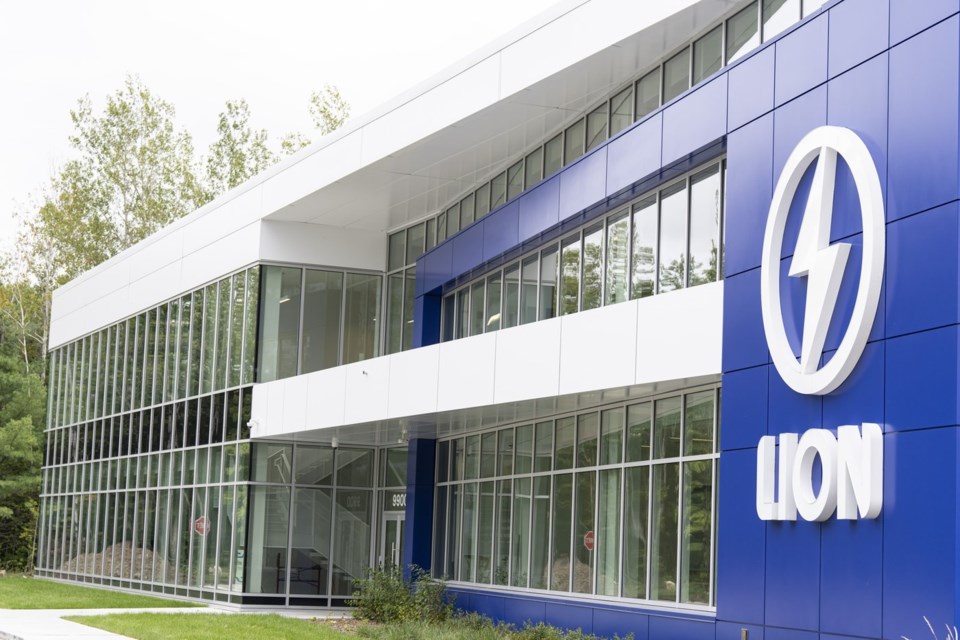MONTREAL — The Quebec government says it is rethinking the pace of its plan to electrify the transportation sector and will not pump any more public money into vehicle maker Lion Electric.
Economy Minister Christine Fréchette told reporters in Quebec City on Thursday that the government had to make a "difficult decision" about whether to invest more government dollars in the beleaguered company, which manufactured electric school buses and trucks.
She said the governing Coalition Avenir Québec had received a proposal from a group of buyers interested in Lion Electric, which sought creditor protection in December amid financial struggles. News reports this week said the group was seeking government aid of about $24 million to relaunch the company.
"It would have been irresponsible to go ahead with another significant injection of public funds into Lion, based on the plan that was presented to us," the minister said. "I would have expected the private sector to be more involved."
Lion Electric was once a star player in Quebec's aspirations to be a leader in electric vehicles, but it is now in peril. This week, Premier François Legault suggested the government's agenda may be shifting, given the political reality south of the border.
"We see that the situation has changed in the United States with the arrival of (President Donald) Trump," he said. "I continue to think that in the medium and long term, we need to electrify both our transportation and our entire economy. But we have to realize that currently, in the short term, we have a neighbour who isn't making this a priority."
Fréchette first made the announcement about Lion Electric Wednesday evening on social media, saying the government believed in Lion's potential and it was difficult to decide not to support "a local company that offered an innovative product that contributed to the energy transition."
Quebec has already invested heavily in the St-Jérôme-based company. On Thursday, Premier François Legault told reporters the province stands to lose about $140 million on its bet on Lion Electric.
The decision appears to jeopardize the company's hopes of restructuring. It has been seeking a buyer since December, with a restructuring plan that would focus only on school buses and return all manufacturing to Quebec. The company shut down production at a plant in Illinois last year after undergoing several rounds of layoffs. It has said its remaining staff are focused on servicing school buses and trucks already on the road.
Lion Electric was expected to present the bid from the group of buyers to Quebec Superior Court on Monday. Its court-appointed monitor has said it has also received offers from companies interested in liquidating the electric-vehicle maker. A spokesperson for Lion did not respond to a request for comment.
The government's decision has been met with "panic" by Quebec school-bus operators, said Luc Lafrance, president of the Quebec federation of bus operators. The companies relied on Lion Electric to fulfil a government requirement that all new school buses be electric.
There are about 1,175 Lion school buses on the road in Quebec currently, out of a total fleet of about 8,000 buses, Lafrance said. Quebec has said it wants 65 per cent of its school buses to be electric by 2030.
The province offered subsidies to help operators afford the higher cost of electric buses, but that program expired in March and has yet to be renewed, as Lion Electric's search for buyers played out. However, the obligation to buy electric buses remains, which Lafrance said presents a "major dilemma" for operators, who will have trouble renewing their fleets.
On Thursday, Environment Minister Benoit Charette said the government is "evaluating the entire electrification file," including school buses. "We have a market that has changed considerably, a situation that is evolving," he said.
Earlier this week, Legault also suggested changes may be coming, raising doubts about the "speed" of the current electrification program.
Normand Mousseau, a physics professor at the Université de Montréal and scientific director of an energy institute at the university, said Quebec shouldn't back away from its targets just because of Trump. He pointed out that there are still large markets for electric vehicles in the U.S., including in California and New York.
Still, he said Quebec's subsidy program for school buses was poorly designed, and did little to bring down the high cost of electric buses. "So what we find ourselves with today is significant expenditures that have not delivered that much," he said.
Lafrance said the government will also have to come up with a solution for servicing the existing Lion Electric buses if the company goes under. On Thursday, Legault suggested the province could turn to rival companies to provide maintenance.
This report by The Canadian Press was first published May 1, 2025.
Maura Forrest, The Canadian Press



